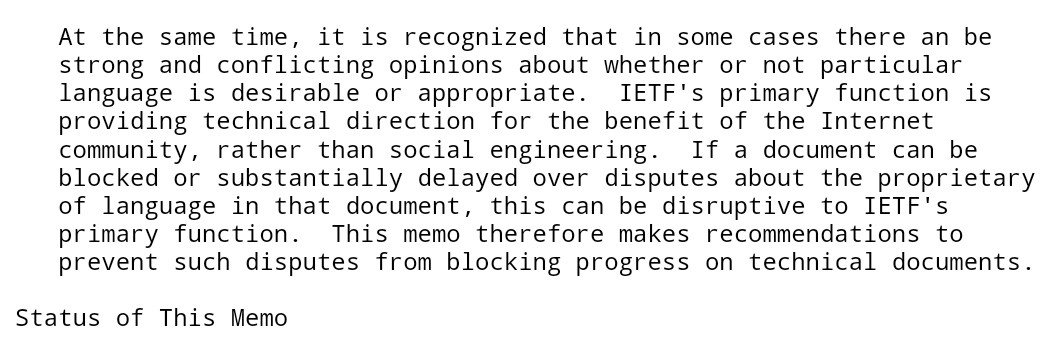There is a space between 'RIPE should not become the routing policy' and 'the routing infrastructure is value neutral', the community could accommodate for different values, and express them in the architecture.
#RIPE78 #infrastructuralista
#RIPE78 #infrastructuralista
Let's not forget: the commercial interest is a very explicit value (which has significantly shaped the Internet).
Commercialization was only introduced to the Internet scale beyond the NSF backbone, not to replace all other principles. tools.ietf.org/html/rfc1192 #RIPE78
Commercialization was only introduced to the Internet scale beyond the NSF backbone, not to replace all other principles. tools.ietf.org/html/rfc1192 #RIPE78
With the increasing importance of the Internet, society will get more involved with the infrastructure, and will want to see its values reflected into it.
If the RIPE community wants to resist this, this might mean that policy makers will make decisions without them. #RIPE78
If the RIPE community wants to resist this, this might mean that policy makers will make decisions without them. #RIPE78
• • •
Missing some Tweet in this thread? You can try to
force a refresh









